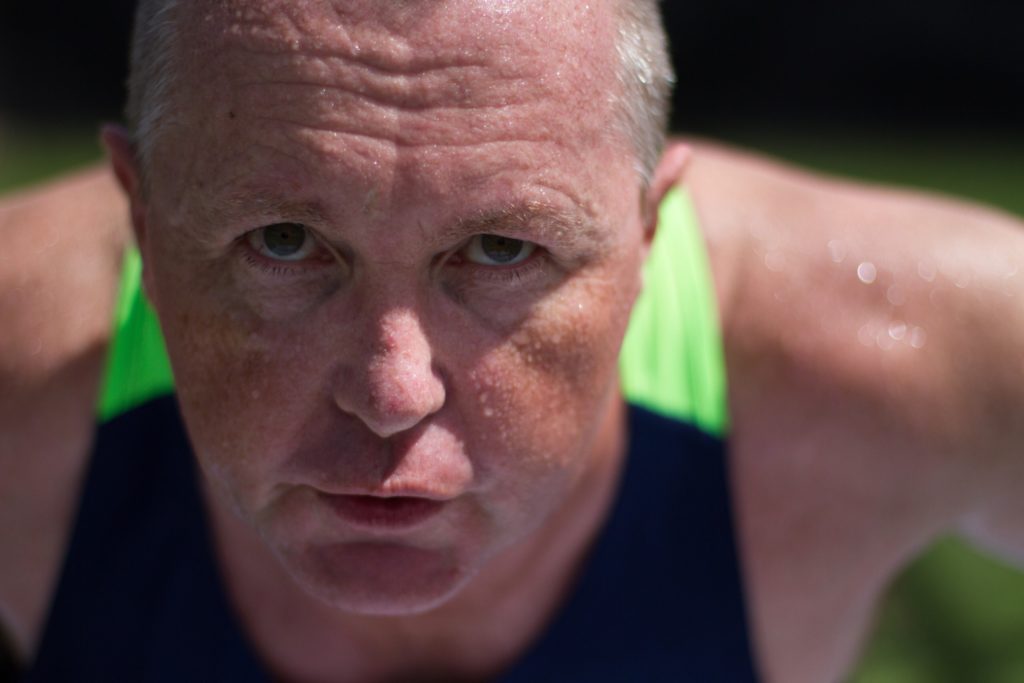Work can be a minefield when it comes to interactions with your boss, your peers and your team members. One of the toughest challenges can be silencing your own self-doubt. For Power Up, our expert – executive coach Malvika Singh – shares her tips about how to get out of your own way and perform at your highest level. She’s sharing practical advice on how to shut the duck up.
shut the duck up!
Sally Gunnell broke the world record for the 400m hurdles in Stuttgart in 1993. Her most noteworthy opponent? It was not one of the other competitors running beside her. It was Sally herself – her own self doubt.
For years, Sally’s performance had been marred by her self doubt about her abilities. Questions like: “am I good enough, fast enough, fit enough, trained enough, am I …..” You can fill in the blanks.
Her coach referred to this self doubt as a duck on her shoulder.
And suggested that she “shut the duck up!”
your strongest barrier to success may be you
We all have our metaphorical races at work and at home. We tend to focus on external barriers and people. But I would like to assert that your most noteworthy opponent is often you.
This is bad news and good news. The bad news is that you are your biggest barrier; and the good news is that given that you are your biggest barrier, you can also learn to get out of your own way. It is in your hands.
Most people suffer from self doubt at some point, and business leaders are not any different. It’s a human condition. As an executive coach, the self doubts I hear most often from business leaders is a variation of “will I be found out, do I have what it takes? Am I good enough, smart enough, old enough, young enough, nice enough?”
And it’s not only my clients. I find my own duck telling me some very unhelpful messages at the wrong times, especially during some of my most vulnerable moments.
the inner game
Author and coach Timothy Gallwey refers to this as “The Inner Game.” His simple and elegant formula is p=P-i, where p= Performance; P= Potential; and i= Interference.
In plain English: our Performance is the sum of our Potential minus the Interference we encounter.
We all have the potential to be extraordinary when we can minimize our interference. Simple but not easy!
Gallwey, a former tennis professional, missed a simple smash in a critical moment in the US Open junior final and lost the match. He was haunted by his inability to have executed a smash that he had practiced and excelled at in training. His key insight is that it is mental interference, not a lack of capability, that often holds us back from greatness.
how to get out of your own way
The insight is useful and maybe even already known to you. The big question is what to do about it. Here are 6 tactics to help you get out of your own way.
1. Become familiar with your duck: what it says and when
Let’s do a series of thought experiments:
Experiment 1 : Quickly think of a time you screwed up really badly. I want to you to recall this episode in its most vivid details. How do you feel? What are some of your thoughts? I’ll bet it does not feel good. And I’ll bet you can locate the feeling in your body. Perhaps stooped shoulders, shortness of breath, tightness in the abdomen or in your chest.
Experiment 2: Quickly snap out of experiment 1, and think of a time you “walked on water.” We all have these moments: you’re in flow, and magic just unfolds. Lean into this memory – how does it feel? What are your thoughts? I bet you are standing a bit taller, and feeling lighter and more energized.

This feeling is infectious. If I were in the room with you, I am sure I would experience this difference in you without your saying a word to me.
Now: imagine you walk into a challenging situation. How do you think you would perform with the thought experiment 2 in mind? Research shows you will perform better.
2. Choose your thoughts: the power of mental training
Question – who is choosing your thoughts? If your answer is “I am choosing my thoughts,” then I want to challenge you. I believe that for most of us, our thoughts are choosing us.
It is rigorous mental training and skill – the ability to choose our thoughts when the stakes are high – that can distinguish a champion from the rest of the crowd. A tennis champion like one of my favorites, Roger Federer, has it. At match point, he’s proven his ability to come back from a losing position, and turn the game and the match around. I doubt that at those crucial moments, he is telling himself: “you idiot, you screwed up, you are a loser, it’s over!”
Mental training is a key part of the training regiment of elite athletes, Navy Seals, Marines, and FBI agents, just to name a few. It makes a difference in performance. And is something you can train for, learn and practice.

3. Visualization
Imagine a good outcome. In your mind’s eye, go over the entire scenario you’re facing, be it a challenging meeting, a job interview, or an investor presentation. Imagine the different challenges that might arise and how you will respond. Most importantly, think vividly in technicolor of your ideal outcome.
4. Embody your best self – strike a Power Pose
You may be familiar with the work of Amy Cuddy, author of the best-selling book Presence: Bringing Your Boldest Self to Your Biggest Challenges.
Her key premise is that you can work inside out (choose your thoughts) or outside in. Stand tall and make yourself as big as possible. Imagine you have just won the most important championship in the world, and take deep breaths. Do this for 2 minutes. This simple exercise changes your body chemistry and impacts your thinking and feeling. Research shows this will help your performance in challenging situations.
Try this out. I’ve done it, and it works. And when there are people around me and I can’t do the power pose, I do some version of this by sitting up straight and choosing empowering thoughts.

5. Fail and learn from failures
Going back to the world of sports, elite athletes do not have 100% success rates. Rather, on average, they just win more often than they lose. Too often, I see executives expecting 100% success rates and beating themselves up for their “failures.”
We need to change our mindsets about failures. They are not fatal, and in fact are an important part of our growth.
Let’s do another thought experiment: think of a recent failure you experienced. Now imagine that instead of you it was your best friend who had the experience. What would you be saying to them and thinking about them? How is it different than what you say and think about yourself?
We have a tendency to beat ourselves up. I am just as guilty of this as anyone else. A good friend gave me a piece of advice that I will never forget: “if you treat your friends like you treat yourself, you will have no friends.” Be gentle and kind to yourself, like you would be to a dear friend.

6. Pay attention to your own well being
When we are sleep deprived, exhausted, under- or over-nourished, the negative interference we can throw in our own way is even bigger. These are things you can control. It is unthinkable for an elite athlete to go into a match straight out of a long haul flight with jet lag. Or after having eaten a heavy meal accompanied by ample alcohol into the late hours of the night. Or at the end of a jam-packed day back-to-back in meetings.

The key to minimizing your interference is to get familiar with it and to practice the strategies to overcome them every day. What does your duck say? And more importantly how do you shut it up?
ready to power up?
For a weekly dose of career insights and ideas, sign up for our newsletter, Power Up, here.
 Malvika Singh is the founding partner of IMPACT, an international consulting and leadership development firm. She works with Boards, CEOs and top leadership teams. Her client list includes American Express, eBay, McKinsey & Company, Novartis, Siemens, Swiss Re, and WPP.
Malvika Singh is the founding partner of IMPACT, an international consulting and leadership development firm. She works with Boards, CEOs and top leadership teams. Her client list includes American Express, eBay, McKinsey & Company, Novartis, Siemens, Swiss Re, and WPP.
Malvika is a member of Harvard Kennedy School Women’s Leadership Board (WLB), and a board member of Advance, a cross company women’s leadership initiative she co-founded. She holds an undergraduate degree from The University of Pennsylvania, and an M.B.A. in Finance and International Business from New York University. She currently resides in Zurich.







